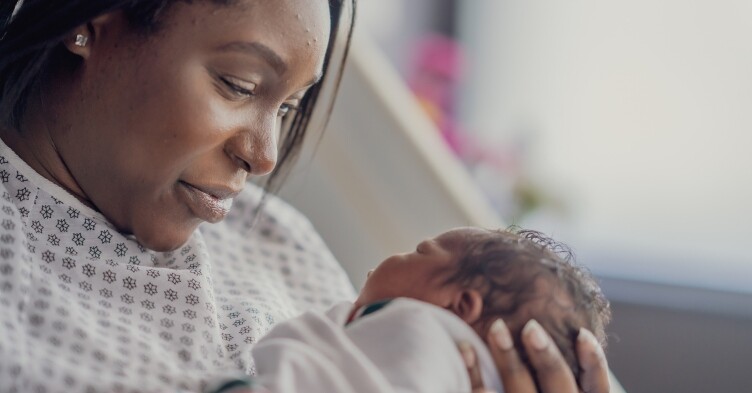Mythbuster: ‘I had to come off the pill/implant, it made me put on so much weight’

The reality: There is no evidence that the pill or implant make you put on weight and the same can be said for most (but not all) methods of contraception
_____________________________________________________________________________
Related Article: Postnatal contraception advice reduces the risk of back-to-back pregnancies
Contraception is somewhat of a hot topic at the moment. Provision of long-acting reversible contraception (LARC) methods was interrupted by Covid-19 with the predictable result of a rise in terminations of pregnancy (TOP).1 Over 4,000 more TOPs were carried out in January to June 2020 compared to the same period in 2019, a rise of around 4%. LARC fittings have now restarted at a pace, though I fear we haven’t yet caught up, and I hope that we will be able to carry on during the next lockdown.
Contraception consultations always involve mythbusting and I often have to point out that those who are happy with their contraception do not generally go online and say so. Searching for advice, therefore, leads to a skewed view which overstates the side-effects. In my experience the commonest concern is weight gain and it is not reassuring to find that weight change/increase is listed as a side-effect for the implant and combined pill.2,3 We all know however that correlation does not equal causation – if you study a group of people over time, some will gain weight, some will lose it and some will stay stable. So a woman gaining weight whilst on the pill isn’t necessarily an adverse effect – would she have had the same weight change if not on hormonal contraception?
The Faculty of Sexual and Reproductive Healthcare (FSRH) 4 produces the UK’s gold-standard guidelines on contraception; they state that there is no evidence for weight gain resulting from use of combined hormonal contraception (CHC).5 It’s difficult to study this area as you need a group of women taking CHC and a control or placebo group – the study needs to be blinded, but ethically this is tricky because women need to know if they are at risk of pregnancy. More studies are needed but a 2014 Cochrane meta-analysis6 of 49 trials, four of which had a placebo (or no intervention) group found that there was no substantial difference in weight between the CHC group and the placebo group. The proportion of women discontinuing CHC due to weight gain was small (less than 5%) and stable between studies. An earlier systematic review, done in 2012,7 looked specifically at girls who use CHC under the age of 18 and also found that there was no evidence for weight gain or changes in body fat, lean mass or growth. A press release to accompany the FSRH guideline8 reminded us that women of reproductive age do tend to gain weight over time regardless of contraceptive method; this (and the proximity of the fridge during lockdown) is much more likely to be the issue than a direct effect of the pill or implant.9
We should not dismiss women’s concerns and we can’t say that no woman will ever gain weight on a contraceptive method. We can however quote the FSRH and tell women that there is ‘no evidence that intrauterine contraception (the IUD and IUS), the implant, the progestogen-only pill or combined hormonal contraception (the combined pill, the patch and the vaginal ring) cause significant weight gain.’8 The only method where there may be a link is the depot injection. The FSRH say that that ‘data is insufficient to confirm or exclude a causative relationship between use of the contraceptive injection and weight gain’8 and so this may be a less ideal method for a woman who is particularly concerned about her weight.
Related Article: ‘Concerning acceleration’ in drug-resistant gonorrhoea ahead of vaccine programme
Weight gain is a common reason for discontinuing the depot and it seems that being overweight or obese before starting the depot is predictive of further weight gain.10 Studies of adolescents have shown that weight gain is more likely with the depot than the combined pill, the implant, or no hormonal contraception, although this association has less evidence for it in adult women. In particular, women who gain more than 5% of their baseline weight in the first six months of depot use are likely to continue to gain weight and it may be sensible to counsel these women as to whether they want to change their method.
Prescribers of contraception must be able to mythbust to be effective – the myth that weight gain must be due to the woman’s hormonal contraception is relatively easy to counter, thus hopefully giving your patient access to a wide range of useful methods.
Related Article: Government to introduce HPV self-sampling for ‘under-screened’ women
References
- https://www.gov.uk/government/publications/abortion-statistics-during-the-coronavirus-pandemic-january-to-june-2020/abortion-statistics-for-england-and-wales-during-the-covid-19-pandemic
- https://www.medicinescomplete.com/#/content/bnf/_570395261?hspl=nexplanon#content%2Fbnf%2F_570395261%23pot-sideEffects
- https://www.medicinescomplete.com/#/content/bnf/_296203164?hspl=microgynon#content%2Fbnf%2F_296203164%23pot-sideEffects
- https://www.fsrh.org/home/
- https://www.fsrh.org/standards-and-guidance/documents/combined-hormonal-contraception/
- Gallo MF, Lopez LM, Grimes DA, Carayon F, Schulz KF, Helmerhorst FM. Combination contraceptives: effects on weight. Cochrane Database Syst Rev. 2014 Jan 29;(1):CD003987. doi: 10.1002/14651858.CD003987.pub5. PMID:
- Warholm L, Petersen KR, Ravn P. Combined ora l contraceptives’ influence on weight, body composition, height, and bone mineral density in girls younger than 18 years: a systematic review. Eur J Contracept Reprod Health Care 2012;17:245–53.
- https://www.fsrh.org/news/fsrh-press-release-new-guidance-contraception-weight/
- https://www.fsrh.org/standards-and-guidance/documents/cec-ceu-guidance-implants-feb-2014/
- https://www.fsrh.org/standards-and-guidance/documents/cec-ceu-guidance-injectables-dec-2014/

See how our symptom tool can help you make better sense of patient presentations
Click here to search a symptom




